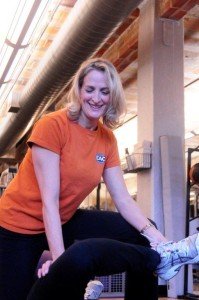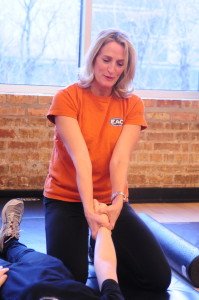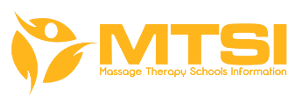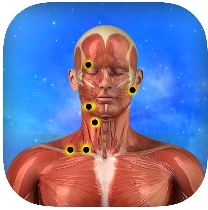
I live in Skokie, IL which is in the metropolitan Chicago area. I am a solo practitioner. I have worked in hospitals, health clubs, spa’s and had a home office. I prefer working from my car or in my home office. I am a Clinical Exercise Specialist and I work with a medically referred population for general strength and conditioning and I often incorporate massage into my practice. Most of my massage only clientele are exercise clients, their caregivers or friends and family. I do a lot of barter.
2. Tell us why you chose to go into massage and at what point in your life did you decide to do so? What were you doing at the time? Where did you first hear about the massage career? What factors influenced your decision? What were you looking to get out of this decision?
I chose massage at the time in my life when I was working acute care rehabilitation as a Kinesiotherapist. I was accepted into grad school and was looking for part time work that was flexible. I have massaging since I was a kid. I have always been attracted to the field and it was on my bucket list for years. I was waiting for a time in my life that worked. I wanted to finish my college degree and get a job in my field before going to massage school. I was looking for part time flexible work.
3. What were some of your questions and concerns before further pursuing your massage therapy goals? Talk about concerns with school and the profession itself.
I finished school in 1992. The concern back then was the professionalism of the industry and AIDS. The AIDS epidemic was at its height and it was prior to the disease being downgraded to a chronic condition. I was working in acute care and was treating patients with HIV and AIDS and understood transmission, but it was scary for a lot of students. The other major concern was the confusion between massage therapy clinics and brothels. That was a uphill battle that I am happy to report we have conquered!
4. What is your specialty and what are the top three contributing factors to your success today?
My specialty is lower back pain and muscle skeletal pain. Contributing factors are my experience as a Kinesiotherapist. My technique of stretching during massage and my experience in exercise prescription. I am also a firm believer in continuing education. The more tricks in your bag, the more well rounded of a practitioner you become.
5. What do you like about your specialty? What do you like about what you do in general as a career? Why?

6. What do you not like about what you do?
Why? I do not like carrying a table around with me. As light and easy to carry as they are made, they are still cumbersome and heavy. The wheeled carts help some, but they still have to be lifted a fair amount. I also do not like how tired and sore my hands are getting after 20 plus years of doing massage.
7. If there were three things you could change about your work or the industry as a whole what would they be? Why would you change them? What would you change them to?
This is a hard question. The first thing I would change is the discrepancy between schools. I would try to “standardize” the curriculum, similar to the Canadian model for Massage Education. Second, I would try to get insurance to cover a portion of the sessions as preventative health and lastly, I would “mainstream” massage into medicine. For instance, I would make it standard treatment for certain medical practices. I would have massage therapists in greater numbers in hospitals, clinics, geriatric centers etc.
8. How long do you plan to practice and what do you plan to do after?
I plan to practice as long as my hands will allow me to feel. I do sell part time massage equipment for Massage Warehouse. I love the dichotomy it provides and it is another way to help future therapists and continue to give back to the practice.
9. Do you currently have another job or business whether full time or part time? Tell us a bit more about it and how you are able to juggle that with your massage career?
I am in sales. I divide my hours usually by morning for clients and afternoons for sales stuff or vice versa depending on the day.
10. What are some mistakes you made in your career pursuit that you’d like to warn other students about so they can learn from your experience and avoid it?
The biggest mistake I make (and often remake) is deciding what the client needs as opposed to letting the client and their bodies dictate treatment. Usually if you pay attention, the client will tell you either by tissue response or verbally. Getting out of the way is my constant struggle.
11. What would you advice someone who is looking at massage therapy schools? What do you recommend they look for and how? How do you recommend they determine whether the school is the right one for them?
This is really hard since the industry is still growing and learning. I would first look at placement rate and where students are getting placed. Secondly, I would look at the national board exam pass rate. The third thing I would do is ask the philosophy of the school. Are they teaching medical massage? Relaxation massage? Sports Massage? Where did the instructors get their training? How long have they been in business?
I would ask local massage therapist where they went to school and what their recommendations are. I graduated from Massage School in 1992 when there was only one school in town. I have sold massage products to all the Chicago schools and I am shocked by the difference in philosophy and focus. In today’s market, buyers beware!
12. What do you recommend for someone who wants to go to massage school but cannot afford it?
I would discuss with the school financial aid and see if they have arrangements. Some schools offer work study programs. It may be possible to work for a clinic and get a stipend for massage school. I am certain there are loans available. Once again, check prices for schools and do your due diligence.
13. What are your three biggest points of advice for an aspiring massage therapist today? What should they do/not do? What should they think about and consider?
Self care, self care and self care. You have to keep your body strong and healthy in order to work in the healing are of massage. I am a firm believer in moderation is the key to longevity and no more than 4 (maybe 5) massages a day. Massage is beautiful, but it is energetically draining and the therapist has to constantly protect themselves. I am a huge proponent of continuing education.
14. Any open thoughts / comments – anything else that you’d like to share about yourself, the massage industry, profession, future, etc? If nothing, make one prediction for the future of massage?
I love my practice and look forward to see the industry gain more professionalism and respect. I look forward to seeing Doctors prescribe massage as a standard of care and the regulation of massage education. I hope that The United States follows the Canadian model for massage education.
15. What is your passion outside of massage? What are your hobbies and interests which you pursue when you are not working? Tell us why you enjoy what you enjoy.
I find my peace swimming! I am a committed swimmer and love the water. My hair is eternally green and broken but it is a small price to pay for the euphoria that accompanies a good swim!








Leave a Reply